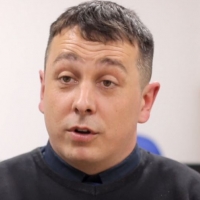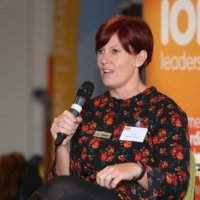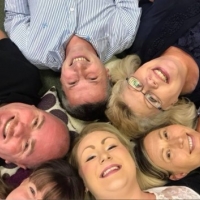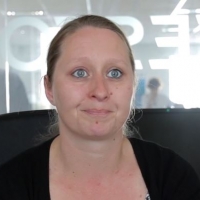Surviving and thriving in tough times
In our latest blog, Leadership Development Manager Pauline Bowe discusses how we can survive, and thrive, in these unprecedented times.
A few weeks into isolation and constant news and updates on social media about Covid-19, the reality is hitting home. There is no easy way out of our current situation. How, as individuals, do we make sense of this and ultimately get our lives back on track, when we don’t know what that track will look like?
You will have heard the saying, that in times of crisis we engage in fight, flight, freeze or flock. Many brave people are engaged in fighting this virus right now, we can’t fly as we have to remain in our homes but using technology we have virtually flocked together beautifully to mutually support and hopefully remain positive about the future. However, many will have frozen, and don’t know what is happening with their jobs, businesses or those of their family members?
Ultimately, it will be our mindsets that will determine how we get through this and a search on the web will provide you with many models and theories to support you. One such model is the internationally recognised 8 Factor Model of Mental Toughness.
Mental Toughness has been defined as “A personality trait which determines, in some part, how individuals respond when exposed to stressors, pressure, opportunity and challenge.. irrespective of the prevailing situation”.
This implies that some have a natural capacity to cope with whatever life throws at them but, for the rest of us we have to work at it…..and with a little effort, we can.
Look at the diagram and the brief summary of the factors, then score yourself on a scale of 1-10 (1 = low, 10 = high) to give you an indication of your own mental toughness. At the moment everyone’s situation is different so the explanations are general. Consider how they apply to you.
- Control describes the ability to feel in control of one’s own life and emotions but with a recognition that you can’t control everything. You tend to be able to manage a high workload and don’t get flustered easily. In a crisis, you can remain calm.
- Commitment is about working towards goals and targets and not giving up easily. You will tend to like setting goals and targets and will stick at tasks even when things become difficult.
- Challenge relates to perceiving difficulties as opportunities rather than threats, taking risks, learning new things and learning from mistakes. You will stretch yourself and step out of your comfort zone. Mistakes won’t stop you from trying again or trying something new.
- Confidence in our abilities and how we communicate with others enables us to use our skills, seek and give support and stand our ground in difficult conversations. You will know what you are good at and will use your skills well and are able to transfer them to other roles or tasks. You can cope well with difficult conversations.
If you scored yourself highly on these constructs it is likely you will be able to manage stress and use your skills and networks to get back on track or, if need be, start again. If you scored yourself at the lower end of the scale then some stress management, goal setting and problem-solving strategies will support you. Many have their roots in Sports and Clinical Psychology so have a good evidence base.
Set Meaningful goals - You have heard it before but it works! Take one step at a time and break large goals and challenges into manageable chunks. It helps to provide a clear pathway to the desired result, but be prepared to review them when and if situations change.
Learn to be optimistic – We tend to have a negativity bias, it probably kept our species alive looking out for threats that we think we thought we knew about but, as we have found, it’s the ones we weren’t expecting that floor us. Use your cognitive energy wisely and look for solutions in places you wouldn’t expect to find them, praise yourself and others, it produces feel-good hormones! Make a list of all the things you are good at and remind yourself you have great qualities and skills and some you haven’t learned yet! Opening our minds to new possibilities enables us to look for them rather than focus on fear.
Visualise – We can have a physical response to the mental images we produce. Think back to the anxiety you felt when you visualised a meeting or presentation that you weren’t looking forward to. Put this mental facility to good use by taking a mental holiday, it helps us to relax. Visualise how you are going to move forward in a positive away rather than focusing on the negative.
Control your anxiety – Relaxation techniques such as yoga, Pilates, mindfulness, or your daily exercise all help to reduce anxiety. The health triangle is also useful to research. It encompasses the social, psychological and physical aspects of health, all of which are being tested right now, but importantly, it includes sleep, diet and exercise. We need to ensure we are actively working on all three! Mindfulness-based stress reduction is a useful ally.
Reduce unwanted distractions– This is probably one of the most important right now, for those living at home with children and other family members whilst trying to carry on working! Hopefully, you will have engaged in the obvious such as taking yourself to another room but sometimes we can’t get away from the noise and distractions. With practice and using the anxiety control and positive thinking strategies to stay calm, you can allow the noises to fade into the background in the same way as sports professionals don’t shout at their audiences for making a noise. They have practiced focusing on the task and not the background. Try it!






.jpg)
Comments